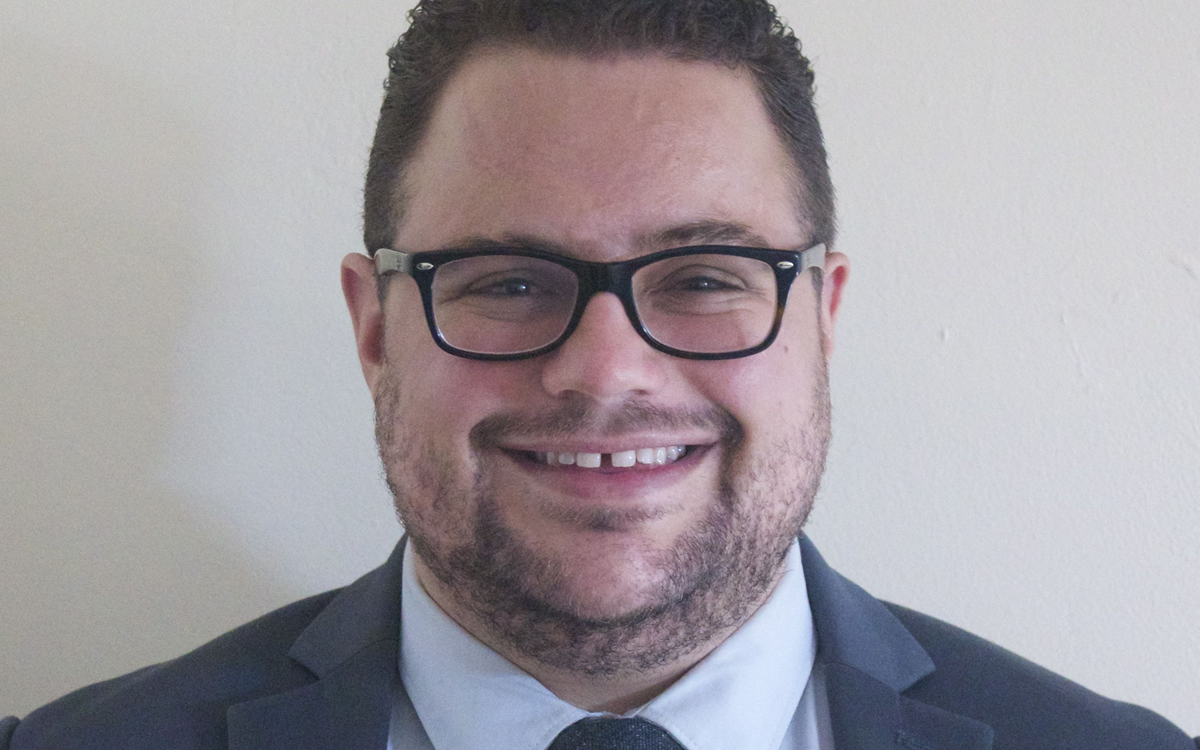National
Will time run out for ‘Don’t Ask’ repeal?
New optimism as Reid commits to vote, but hearings loom

Supporters of “Don’t Ask, Don’t Tell” repeal continue to fret about having enough time to pass a measure to overturn the military’s gay ban before year’s end even as Senate leadership has committed to a vote on the issue during the lame duck session of Congress.
An announcement last week from Senate Majority Leader Harry Reid (D-Nev.) that he would bring major defense legislation with repeal language to a vote bolstered the confidence of supporters as they acknowledge significant hurdles remain in reaching the finish line.
Aubrey Sarvis, executive director of the Servicemembers Legal Defense Network, said he’s “hopeful” that Congress will be able to enact repeal, but acknowledged that “the clock is our enemy.”
“I’m fearful of time running out on the bill before it’s finished or the prospects of strong opposition from a core group of senators who don’t want to see anything happen in the lame duck,” Sarvis said.
Debate on the defense authorization bill traditionally takes about two weeks in the Senate. Given that slightly more than one month remains in the legislative session this year, time for a debate and vote in the Senate — as well as time for conferencing the legislation — would have to be compressed to move forward.
“Normally, that would involve several weeks or months,” Sarvis said. “For us to succeed here, all those elements, debate on the floor, conference, votes in the two chambers on the conference report would have to be compressed to about eight or 10 days on the floor, in conference and back to the two chambers. That’s part of the challenge.”
Sarvis said he expects the defense authorization bill would likely come to the floor after the Senate Armed Services Committee holds hearings on the Pentagon “Don’t Ask, Don’t Tell” report. Levin has said he wants to hear testimony early in December.
“If the hearing is [Dec.] 2, I could see a scenario where the leader might make the motion on Friday the third, or, if the hearing is the sixth, then maybe the next day,” Sarvis said.
One major question is whether enough senators will vote in the affirmative to reach the 60-vote threshold to move forward with debate on the legislation. In September, a previous attempt to move forward with the measure failed by a vote of 56-43.
A senior Democratic aide, who spoke to the Washington Blade on condition of anonymity, expressed confidence about being able to move forward with the fiscal year 2011 defense authorization bill.
“I think that we may be close to having 60 votes to begin debate on the bill,” the aide said. “I’ve seen some positive signs from unexpected Republicans in recent days.”
Sarvis said the ability to move forward will depend on whether at least a handful of Republicans are willing to break ranks with their caucus.
“If you just look at Democrats, the numbers don’t add up to 60,” Sarvis said. “I don’t care how you slice it. So, if we can persuade a handful of Republicans, and I think we can, we will hit 60.”
A number of senators who are seen as key to moving forward with “Don’t Ask, Don’t Tell” repeal have said they want to see an open amendment process in place.
In September, when Senate leadership made an earlier attempt to bring the legislation to the floor, a number of senators said they were voting “no” because they didn’t feel the Republicans could offer a sufficient number of amendments to the legislation.
Last week, Sen. Joseph Lieberman (I-Conn.), the sponsor of repeal language in the Senate, expressed confidence during a news conference about having at least 60 votes to move forward — provided certain conditions are met with the amendment process on the Senate floor.
“I am confident that we have more than 60 votes prepared to take up the defense authorization bill with the repeal of ‘Don’t Ask, Don’t Tell’ if only there will be a guarantee of a fair and open amendment process,” Lieberman said.
Lieberman said he’s received assurances from Sens. Susan Collins (R-Maine) and Richard Lugar (R-Ind.) — as well as “others privately” — that they would vote for moving forward with the defense authorization bill if a more open amendment process is in place.
The amendment process these senators are seeking remains somewhat nebulous. What standard for the process are these fence-sitting seeking to win their support for moving forward?
Asked about this during the news conference, Lieberman said the exact terms are up for negotiation.
“It’s hard to put a number on it now,” Lieberman said. “That’s what I hope is going to be negotiated. Of course, we’ll do our best to encourage Sen. Reid to reach out to allow a somewhat larger number.”
Some Democrats speculate the call for a change in the amendment process could be an excuse for some fence-sitting senators to vote “no” on moving forward with the defense authorization bill.
Jim Manley, a Reid spokesperson, said the senator has “always been committed to having a fair debate and votes” on the defense authorization bill and specifically on the “Don’t Ask, Don’t Tell” provision.
“We are prepared to proceed in a way that would allow Senators on both sides to voice their concerns and to offer relevant amendments to the bill,” Manley said.
Manley said critics of “Don’t Ask, Don’t Tell” are spinning “a myth” that Reid “is somehow trying to bypass debate on this critical issue.”
The Democratic aide said this call for a more open amendment process could enable some senators to vote against moving toward final passage of the bill after the legislation comes to the floor.
“You could have … some Republicans using process arguments to say, “No, we haven’t had enough debate time and I cannot support moving toward final passage of the bill yet,'” the aide said. “The Republicans might just try to run out the clock.”
The aide said a fair amendment process in the Senate has “never, ever meant” that debate can continue “as long as anybody wants to continue the debate, as long as there are amendments to be talked about and voted on.”
Sarvis noted that unlike in September, Reid has said the DREAM Act, an immigration-related bill, wouldn’t be offered as an amendment to the defense authorization the next time around and would instead come to the floor as standalone legislation.
“By doing so, he has shown his good faith in proceeding toward a fair and open manner in which senators on both sides of the aisle have an opportunity to offer amendments,” Sarvis said.
Sarvis also said Reid’s commitment to allow amendments on the “Don’t Ask, Don’t Tell” and abortion-related provisions in the defense authorization bill was evidence of the majority leader’s commitment to fairness during debate on the legislation.
It’s possible that in exchange for repealing “Don’t Ask, Don’t Tell,” Senate leadership will have to agree to a vote on amendments that would rile the White House, such as a measure related to the terrorist detention facility at Guantanamo Bay or an amendment to try terrorist suspects by military commission.
Sarvis said he doesn’t “think it’s any secret” that Republicans may be looking at amendments like that.
“Are there some Republicans who would like to put the administration on the hot seat with respect to some amendments?” Sarvis said. “Perhaps. But my hope would be that when the ‘Don’t Ask, Don’t Tell’ provisions are debated on the floor that amendments [in that nature] would not be in the mix or part of that debate.”
The Democratic aide said deals are often cut at late stages in the game, but he doesn’t think opponents of “Don’t Ask, Don’t Tell” repeal in the Senate would allow moving forward with ending the law even with an agreement to have a vote on those issues.
“My sense is that [Sen. John] McCain and [Sen. Lindsey] Graham and their crew are dead set on stopping the repeal of ‘Don’t Ask, Don’t Tell,'” the aide said. ‘I don’t think that they’re willing to deal that away.”
As these questions linger, eyes will be on several key senators to determine whether the chamber can reach the 60-vote threshold needed to move forward when the legislation comes before the Senate again.
The offices of both senators Lieberman mentioned as “yes” votes under a different amendment process — Collins and Lugar — said they would be open to moving forward with the defense authorization bill if certain conditions are met.
Mark Helmke, a Lugar spokesperson, said the senator hasn’t taken a position on “Don’t Ask, Don’t Tell” and is waiting for the Pentagon report on the issue, which is now set for release on Nov. 30.
“He is in favor of having a full debate on the matter as part of the defense authorization bill if there is a consent agreement for timed debate and votes on a number of issues,” Helmke added.
Kevin Kelley, a Collins spokesperson, confirmed the Maine senator was concerned about what she perceived as the lack of an open process the last time the legislation was brought up for a vote.
“In September, she was disappointed that the Democratic majority leader chose to shut down debate and exclude Republicans from offering any amendments to the defense authorization bill, which contains the repeal language,” Kelley said. “She believes that was unfair and contrary to the rules and tradition of the Senate.”
Still, Kelley maintained that Collins agrees with Defense Secretary Robert Gates and Chairman of the Joint Chiefs of Staff Adm. Mike Mullen that the military’s gay ban “should be repealed” and recalled that the senator voted in favor of a repeal amendment in committee during the spring.
Another senator who could be in play is Sen. Lisa Murkowski (R-Alaska). Fresh off her re-election win as an independent write-in candidate in her state, Murkowski isn’t beholden to the far right for her victory on Election Day. She also didn’t vote one way or the other on the motion to proceed on the defense authorization bill when it came before the Senate in September.
A local TV station in Alaska reported last week that Murkowski was in a position to vote to advance the defense authorization bill. But Michael Brumas, a Murkowski spokesperson, later clarified that this support is dependent on the result of the Pentagon report.
“Sen. Murkowski would not oppose a defense authorization bill that includes a repeal of [‘Don’t Ask, Don’t Tell’] if the Pentagon study shows that repeal is supported by the troops, doesn’t hurt performance, morale or recruitment and the military allows for an orderly transition,” Brumas said.
Additionally, Brumas said the manner in which Senate leadership handles the amendment process would be important for Murkowski’s support.
“If the majority attempts to push it through allowing little or no debate or votes on amendments, Sen. Murkowski would be inclined to oppose those efforts,” Brumas said.
One surprise senator who could vote to move forward with the defense authorization bill is Sen. John Ensign (R-Nev.). Last week, LGBT advocates asserted one of his staffers informed them that he wants to repeal “Don’t Ask, Don’t Tell” and would vote for cloture on the defense authorization bill.
Laura Martin, communications director for the Stonewall Democratic Club of Southern Nevada, said she and other activists met with Margot Allen, Ensign’s regional representative on military issues, who informed the group of the senator’s position.
“The first question was about ‘Don’t Ask, Don’t Tell’ and his staffer said he supports repeal,” Martin said. “We asked her to clarify three times and she said he will vote in the affirmative on the defense authorization with ‘Don’t Ask, Don’t Tell’ repeal in it.”
Jennifer Cooper, an Ensign spokesperson, later said the senator was awaiting the Pentagon report “to see if any changes to this policy can or should be done” with regard to “Don’t Ask, Don’t Tell.” She also said he wants to hear testimony from the military service chiefs.
“Also, he plans to review all of the merits of the Defense Authorization bill before voting one way or another; hopefully it will be a fully open amendment process,” she added.
Other senators that are seen as being in play are moderate Republicans Scott Brown (R-Mass.), George Voinovich (R-Ohio) and Olympia Snowe (R-Maine). The two Democratic senators who joined Republicans in voting “no” in September on moving forward with the defense authorization — Arkansas Sens. Mark Pryor and Blanche Lincoln — could also change their votes.
None of these senators’ offices responded to the Blade’s request to comment on how they would vote on the defense authorization when it comes up during the lame duck session.
The slightly different composition of the Senate also raises questions about the votes from Sen. Joe Manchin (D-W.Va.), who assumed his seat after winning election on Nov. 2, and Republican Senator-elect Mark Kirk of Illinois, who is set to take his seat during the lame duck session of Congress.
During his campaign, Manchin said he wants to wait to hear from military leaders before moving forward with “Don’t Ask, Don’t Tell” repeal. As a U.S. House member, Kirk voted against an amendment that would have repealed the military’s gay ban when it came to the floor in May.
Neither the office of Manchin nor Kirk’s transition team responded to the Blade’s request for comment on the issue.
U.S. Supreme Court
Supreme Court to hear Md. religious freedom case on Tuesday
Advocacy groups to rally outside during Mahmoud v. Taylor oral arguments

Activists on Tuesday will hold a rally in front of the U.S. Supreme Court as the justices hear oral arguments in a case that will determine whether schools are violating parents’ religious freedom by not letting them opt their children out of learning about LGBTQ-specific topics.
Mahmoud v. Taylor is a case out of Montgomery County about parents who wish to opt their children out of LGBTQ-themed lessons in public schools for religious reasons.
Montgomery County Public Schools, after initially allowing parents to opt their children out, changed the policy in March 2023.
The plaintiffs — Tamer Mahmoud, Enas Barakat, and other parents — argue “the storybooks were chosen to disrupt ‘cisnormativity’ and ‘either/or thinking’ among students.”
“The board’s own principals objected that the curriculum was ‘not appropriate for the intended age group,’ presented gender ideology as ‘fact,’ ‘sham[ed]’ students with contrary opinions, and was ‘dismissive of religious beliefs,’” according to the petition on the Supreme Court’s website.
The petition goes further, saying the parents are “not challenging the curriculum, but arguing that compelling their elementary-age children to participate in instruction contrary to their parents’ religious convictions violated the Free Exercise Clause. Construing Wisconsin v. Yoder, the 4th Circuit found no free-exercise burden because no one was forced ‘to change their religious beliefs or conduct.’”
The Coalition for Inclusive Schools and Communities, an organization that aims to bring together “advocates, educators, families, and organizations committed to inclusive, affirming, fact and science-based education,” will participate in the “Rally for Inclusive Education” rally outside the Supreme Court alongside Live In Your Truth and the Montgomery County Pride Family.
“Inclusive education isn’t just a value — it’s a necessity,” said Phillip Alexander Downie, co-chair of the Coalition for Inclusive Schools and Communities and CEO of Montgomery County Pride Family. “The right of every child to learn in an environment where they see themselves reflected, affirmed, and respected is under attack. This rally is our moment to protect that right — and ensure future generations inherit classrooms rooted in truth, equity, equality, and justice.”
The Coalition for Inclusive Schools and Communities says the rally is a “nonpartisan community gathering rooted in education, advocacy, and solidarity.”
“The focus of this event is to uplift the importance of inclusive learning environments, celebrate the power of diversity in our schools, and amplify the voices of those most impacted by exclusionary practices and rhetoric,” it said.
The rally will feature speakers from across the country, including students, educators, civil rights leaders, and authors who will give their own testimonies as to why it is important to have inclusivity in primary education. Trans Maryland, the National Women’s Law Center, MoCoPride Center, and Authors Against Book Bans are among the LGBTQ groups sponsoring the event.
National
EXCLUSIVE: Rodrigo Heng-Lehtinen to step down from Advocates for Trans Equality
A4TE formed last year when two transgender rights groups merged

Advocates for Trans Equality Executive Director Rodrigo Heng-Lehtinen on Monday announced he will step down on April 30.
The Transgender Legal Defense and Education Fund and the National Center for Transgender Equality formed Advocates for Trans Equality last year when they merged. Heng-Lehtinen was previously NCTE’s executive director.
“Now that we’ve made it through the merger, and A4TE is established as a new, prominent institution fighting hard for trans equality, it’s time for me to take my next step,” said Heng-Lehtinen in a press release that Advocates for Trans Equality sent exclusively to the Washington Blade. “When Andy (Hong Marra) and I began envisioning the merger, I committed to seeing it through. I’m proud that now our vision has been realized. A4TE has not just launched, but is fully up and running, delivering results for trans people around the country. With A4TE gaining momentum, I’m now ready to move on to my next chapter.”
Heng-Lehtinen, whose mother is former Florida Congresswoman Ileana Ros-Lehtinen, in the press release stressed he “will be focusing on changing hearts and minds.”
“With my background in persuasion and messaging, it’s where I can make the biggest difference, and what I feel called to return to in this era of anti-trans backlash,” said Heng-Lehtinen. “I will still be fighting shoulder-to-shoulder with everyone (in) the trans movement, simply in a different capacity.”
Marra, who is Advocates for Trans Equality’s CEO, praised Heng-Lehtinen and said the organization’s work will continue.
“We thank Rodrigo for his years of dedicated leadership and service,” said Marra. “A4TE will continue to deliver on our promise to advocate for the lives of trans people who need us now more than ever. We remain undaunted by our endeavor to ensure trans people and our families are no less than free and equal and treated with dignity and respect.”
Louisiana Trans Advocates Executive Director Peyton Rose Michelle also praised Heng-Lehtinen.
“Rodrigo has been a steady hand and a bright light in this work,” she said. “He’s someone who shows up with integrity, kindness, and a deep commitment to meeting this political moment with courage. I’ve always felt deeply supported and heard by him, which is something I value deeply.”
“I fully support him as he steps into this new chapter, and I know his clarity of vision and heart-forward leadership will keep shifting this landscape back toward justice for trans people, and therefore, all people,” added Michelle.
U.S. Federal Courts
Federal judge blocks Trump passport executive order
State Department can no longer issue travel documents with ‘X’ gender markers

A federal judge on Friday ruled in favor of a group of transgender and nonbinary people who have filed a lawsuit against President Donald Trump’s executive order that bans the State Department from issuing passports with “X” gender markers.
The Associated Press notes U.S. District Judge Julia Kobick in Boston issued a preliminary injunction against the directive. The American Civil Liberties Union, which represents the plaintiffs, in a press release notes Kobick concluded Trump’s executive order “is likely unconstitutional and in violation of the law.”
“The preliminary injunction requires the State Department to allow six transgender and nonbinary people to obtain passports with sex designations consistent with their gender identity while the lawsuit proceeds,” notes the ACLU. “Though today’s court order applies only to six of the plaintiffs in the case, the plaintiffs plan to quickly file a motion asking the court to certify a class of people affected by the State Department policy and to extend the preliminary injunction to that entire class.”
Former Secretary of State Antony Blinken in June 2021 announced the State Department would begin to issue gender-neutral passports and documents for American citizens who were born overseas.
Dana Zzyym, an intersex U.S. Navy veteran who identifies as nonbinary, in 2015 filed a federal lawsuit against the State Department after it denied their application for a passport with an “X” gender marker. Zzyym in October 2021 received the first gender-neutral American passport.
The State Department policy took effect on April 11, 2022. Trump signed his executive order shortly after he took office in January.
Germany, Denmark, Finland, and the Netherlands are among the countries that have issued travel advisories for trans and nonbinary people who plan to visit the U.S.
“This ruling affirms the inherent dignity of our clients, acknowledging the immediate and profound negative impact that the Trump administration’s passport policy would have on their ability to travel for work, school, and family,” said ACLU of Massachusetts Legal Director Jessie Rossman after Kobick issued her ruling.
“By forcing people to carry documents that directly contradict their identities, the Trump administration is attacking the very foundations of our right to privacy and the freedom to be ourselves,” added Rossman. “We will continue to fight to rescind this unlawful policy for everyone so that no one is placed in this untenable and unsafe position.”
-

 State Department5 days ago
State Department5 days agoHIV/AIDS activists protest at State Department, demand full PEPFAR funding restoration
-

 District of Columbia5 days ago
District of Columbia5 days agoCapital Pride wins $900,000 D.C. grant to support WorldPride
-

 Obituary4 days ago
Obituary4 days agoLocal attorney, LGBTQ rights advocate Dale Sanders dies at 75
-

 U.S. Federal Courts3 days ago
U.S. Federal Courts3 days agoFederal judge blocks Trump passport executive order













